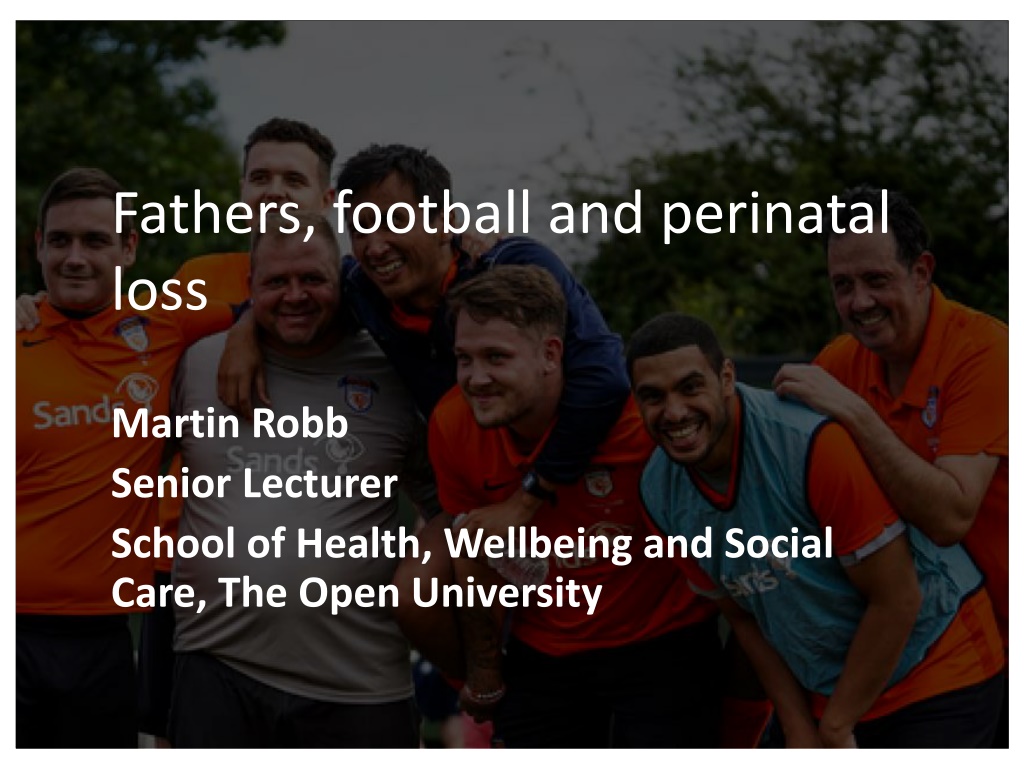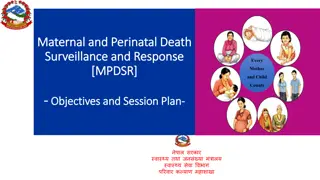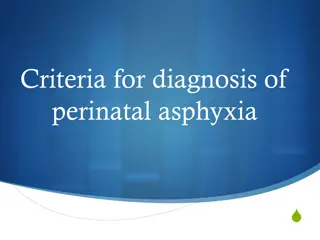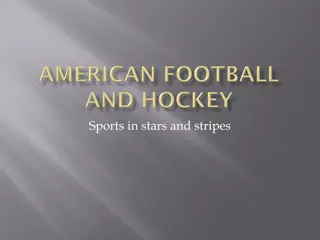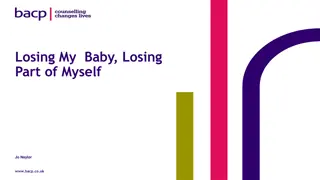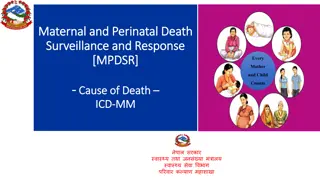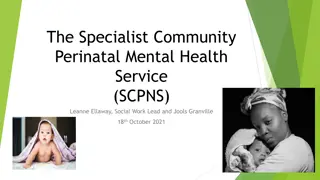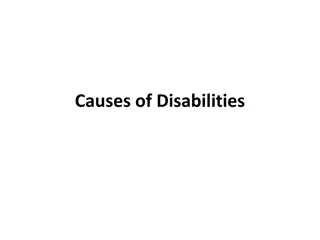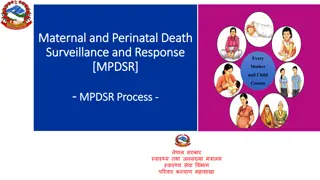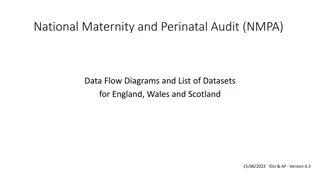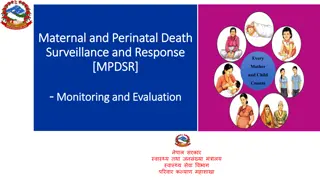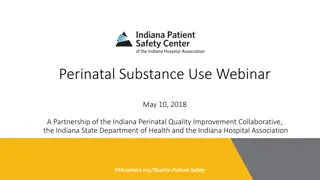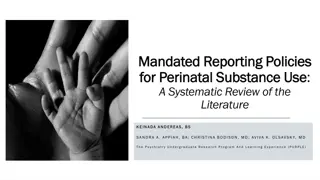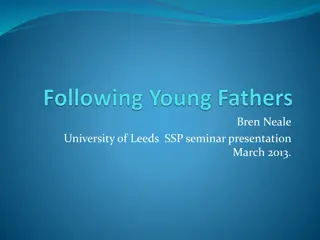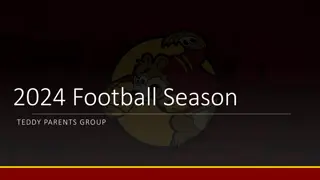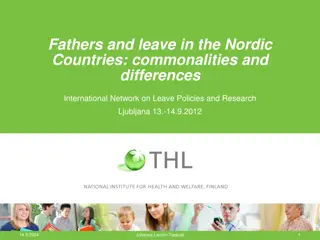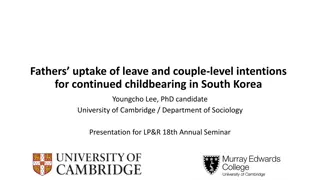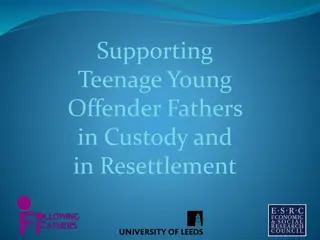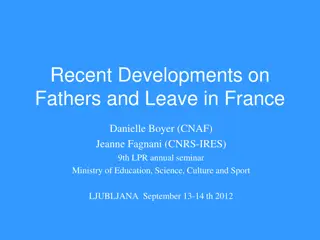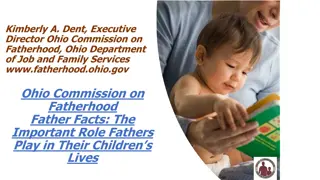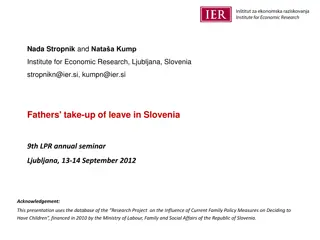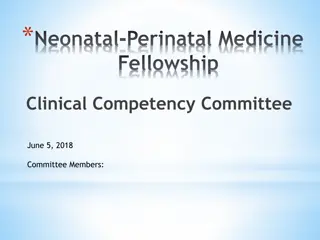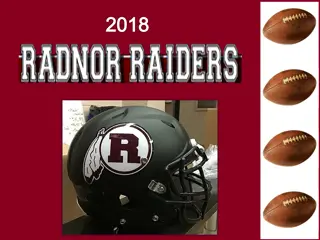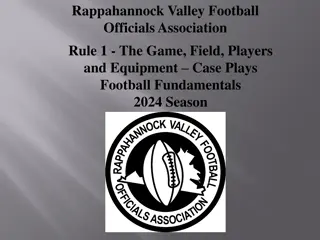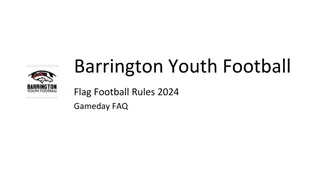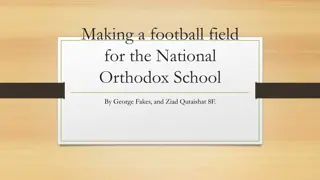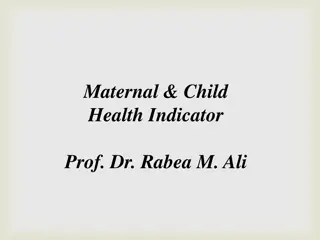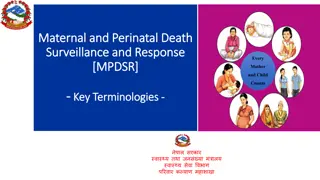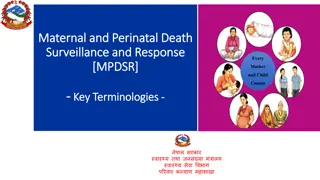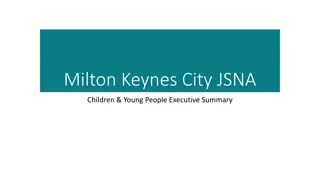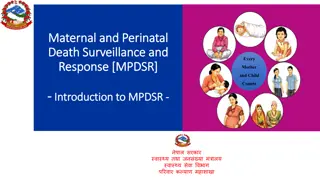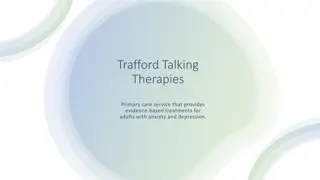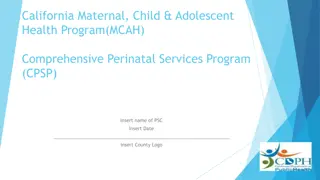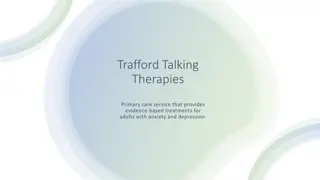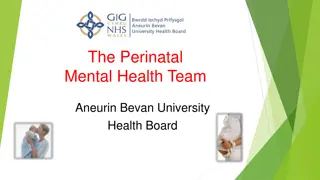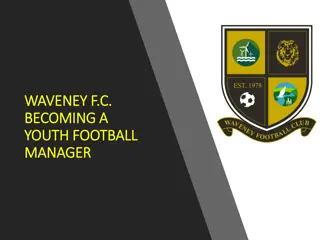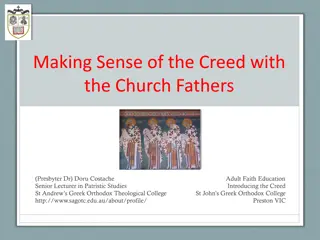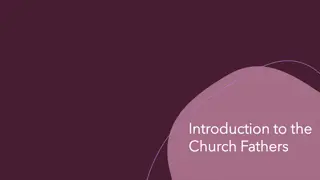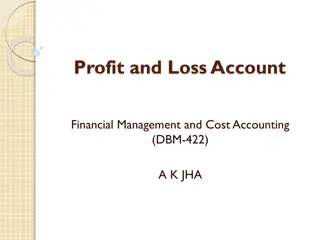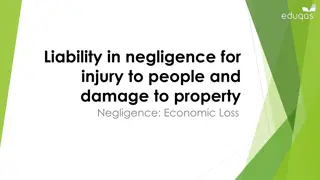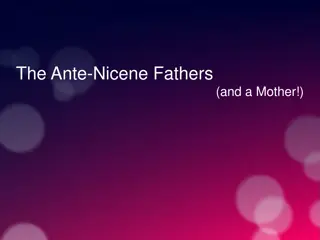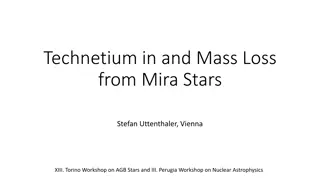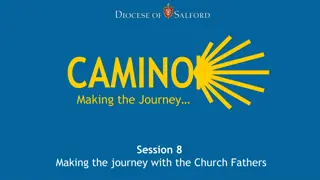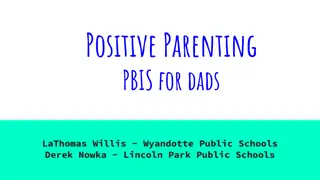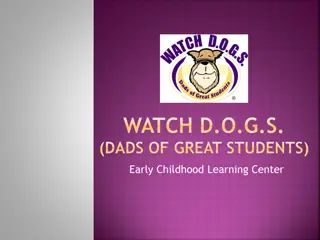Fathers, Football, and Perinatal Loss: Understanding Men's Experiences
Research into perinatal loss and its impact on fathers has been limited compared to mothers. Men tend to internalize grief and lack access to adequate support services, influenced by societal expectations of masculinity. Initiatives like SANDS United, a football team for bereaved fathers, offer a unique support network for men to express their grief and honor their children's memory. A study led by Kerry Jones, Sam Murphy, and Martin Robb aims to explore the effectiveness of such initiatives in addressing men's experiences of perinatal loss.
Download Presentation

Please find below an Image/Link to download the presentation.
The content on the website is provided AS IS for your information and personal use only. It may not be sold, licensed, or shared on other websites without obtaining consent from the author. Download presentation by click this link. If you encounter any issues during the download, it is possible that the publisher has removed the file from their server.
E N D
Presentation Transcript
Fathers, football and perinatal loss Martin Robb Senior Lecturer School of Health, Wellbeing and Social Care, The Open University
Research into perinatal loss and its impact on parents has increased in recent years. However, much less is known about fathers experiences following stillbirth and neonatal loss than is known about mothers . Fathers and perinatal loss We know that men are less likely to access, or benefit from, conventional support services offered to bereaved parents. Social and cultural expectations around masculinity and emotionality encourage men to internalise grief, focus on supporting partner, and being strong and stoical.
SANDS Leading stillbirth and neonatal death charity in the UK. It exists to reduce the number of babies dying and to ensure that anyone affected by the death of a baby receives the best possible care and support for as long as they need it. SANDS provides bereavement support services both nationally through its Freefone helpline, mobile app, online community and resources, and locally through a UK-wide network of around 100 regional support groups and branches. 2019: Meeting at SANDS London office attended by Kerry Jones, Sam Murphy, Martin Robb to secure charity s support for pilot research on men and perinatal loss.
SANDS United First SANDS United football team for bereaved fathers founded in 2017 in Northampton by Rob Allen following the death of his daughter Niamh. Aimed to provide a support network for grieving fathers and an opportunity to honour their children s memory. SANDS United is a unique way for bereaved men to come together through a shared love of sport, find a support network, and feel at ease talking about their grief when they re ready. The SANDS United model has since been adopted by other groups of bereaved fathers at locations throughout the UK. SANDS United has attracted national media attention and the support of royalty and celebrities. However, to date there has been no in-depth exploration of why the initiative is so popular and effective in responding to men s experience of perinatal loss. https://www.youtube.com/watch?v=Rdazi4s- W_I&t=235s
Research team: Kerry Jones, Sam Murphy and Martin Robb bringing together experience of researching stillbirth, bereavement, fatherhood and masculinities. Initial support from SANDS and small amount of internal OU funding to cover transcription costs. Support from colleague in OU Cardiff office who is a bereaved father and organiser of local SANDS United team snowballing recruitment of participants through his networks members of SANDS United teams in multiple locations throughout UK. 11 members of SANDS Utd. teams recruited for small-scale, in-depth study: 34-48 years of age, 6 White British, 2 White Irish, 1 Asian, 2 Greek. Interviews conducted online between April 2021 and March 2022. The study
In what ways does involvement in a SANDS United football team help fathers who have experienced perinatal loss? What can be learned from their experiences about ways of improving support to men who experience perinatal loss? Research questions
How did you get involved with SANDS United? What was it like when you joined? What kinds of things do you do as a team and how do they help? What have been the main benefits for you and others? What other support have you been offered since your loss and what was it like? How could support to bereaved fathers be improved? Interview questions/topics
Accessing support Community of shared loss Space and location to talk Activity facilitating openness Memorialisation Key findings
Most men reported struggling to find support that met their needs. At the time after XXX was born, there was nothing, there was nowhere to go. In terms of a direct person to actually speak to, there wasn t that at all. I was pointed towards different web forums too, and it was always funny funny s not the word to use - in comparison to women talking, the mothers talking, and the level of support and communication and my wife kept in contact with a couple of mothers on her journey. But if you looked at the fathers section, it always had the odd one comment of someone crying for help, but with no one really coming back to them. Accessing support Men felt that their needs were overlooked, and also felt a pressure to be strong. I think generally, society - there's always more empathy towards the mum than there is to the dad, and we seem to have structured our society and that, uh, dad, well, you know, men don't cry, you've got to get on with it, you're the provider. Dads are meant to be the rock and the strong one and all those kind of clich s. So I would say the focus is more on the mum, but we re slightly forgotten in the whole process .
Participants spoke of SANDS United as the first and often only opportunity they had to grieve openly and feel supported by others with similar experiences: It s the team nobody wants to join, but when you join it, you ll never leave because the support, the WhatsApp group was so crazy that we now have three WhatsApp groups, we have one for banter . We have one for match day where we talk about the matches and .. we have one for support and that s where people go on there saying I m having a crappy day and then people get lots of support out of it. But the underlying message is, I can t wait to play with you guys again, I m so proud to walk on a pitch with you, do our angels proud, get the name out there so we can support other people. Community of shared loss The spirit and camaraderie, it s just unbelievable and we are a bunch of strangers, it s just fate that has thrown us together. Yeah, and it s not because we re any good at football, it s just we ve all been through this pretty horrific experience. It s not a team everybody wants to be part of, but it s a team you ll never leave. We ve all got one thing in common; we ve lost a child, we play with the names of our child on our shirts above our hearts. I had the honour of captaining this team on Sunday, not because I m any good, because the game was played close to the anniversary of losing our daughter several years ago.
Belonging to a SANDS United team provided a safe space where bereaved fathers could legitimately talk about their grief. The main benefit for me is having people that understand without having to explain it. Because like I say I ve got two best friends that I ve had for 20-plus years and even now I still can t articulate it to them so that they can have a conversation with me in the same way as anybody else within the SANDS United football team. Space and location to talk I ve been parking my feelings for so long, I ve been looking after other people, the only day we ve ever had dedicated to her was her funeral, so because I was captain for the day I gave a quite impassioned speech in the dressing room, we were all in tears and all this kind of thing about what it meant playing for this team. If you re having a bad day or you just want to chat to someone or you just want to get something off your chest or you want to explain something, you can put it in that support group and yeah I will guarantee within five minutes you ll have at least two or three different people messaging you to check you re OK, to see if they can help, to give some advice or to simply just say I ll tell you what, you know, I m just here to listen to you, you crack on with whatever you need.
Taking part in a shared physical and social activity encouraged participants to share their experiences and emotions. Social activities, casual conversations, and WhatsApp groups provided diverse channels for sharing. We used to do quite a lot of like just sort of drills, a bit of fitness for technical drills, and if you were waiting around then you might have a brief conversation. But if you were like on the side, waiting, maybe you d speak again, but it used to be mainly afterwards, after the training had finished and that, we'd go to the bar and would sit and talk. Activity facilitating openness So numbers wise, people have come, people have gone and - sometimes it's about - we always say football s secondary really because it's not about that, it's just about that safe place to for men to come and talk and football is just the avenue to bring us together...I suppose a bit of a safeguarding thing, almost just to ensure that you know that this is a safe place and you re not going to be judged. We have a very active Whats App group. One of the groups is purely just for support so - guys can say as little as they want it, as much as they want, as little as they want. And that's been an avenue for a lot of lads just to talk about - some of them talk properly for the first time, but there s no fear of any judgment. If they re struggling at any stage, they can put a message on, it s just key to know that you're actually being listened to. And then not being ignored. There was a dad that was playing and we didn't know his story about his loss. And then one day he just posted in the WhatsApp group that this is my story and I thank you all for all the support you've given me and - so it's not, people just come along and start talking about what they want to straightaway. It's when they feel comfortable.
Bereaved fathers often felt that their dead children were forgotten that people were reluctant to say their names and that their own identities as fathers were erased. Membership of SANDS United provided men with opportunities to remember and name their dead child and to affirm their identities as fathers. I do have some good friends who have been very good and asking questions and hearing [baby s name] s name is always I guess any bereaved parents would say the same hearing your child's name is so important to us, that recognition that they were here essentially. Anyone that joins the team and wants to carry on has a football shirt with the name of their loss on there. So I've got [baby s name] name on my shirt. If they didn't name their baby, then they've got stars representing them... Last year the opening season match was dedicated to [baby s name]. And it was really nice and it's nice for dads to you know, we're playing for this baby today. Memorialisation So one of the chaps, when we had a minute s silence, I saw him and he was just holding his - because the name, the star was by - it's like on the top left, so by your chest area - and he was just holding it, and, you know, it's almost like he's holding his child. It was also difficult because at the start of the Father's Day event they have like a minute s silence and I wasn't expecting that, so I was a bit emotional, which is fine. I'm not unduly worried about that, that s, you know, never really an issue, but that made it quite a tough afternoon.
Similarities with other initiatives supporting men s mental health and wellbeing Redcar CF is a football team based in Middlesborough, part of the No Substitute for Mental Health initiative, which uses the medium of football to reach men suffering from mental health problems, including the loss of loved ones to suicide. The team was featured in the 2022 BBC3/Open University documentary, James Arthur Out of Our Minds. Alright Mate? is an arts organisation, based in the south-west of England, which develops participatory art projects that normalise conversations about male mental health. The organisation has created theatre, installations and books with groups such as veterans, construction workers and fathers, in barbershops and gyms, and on building sites. Featured in the OU Connect animation, Man Up or Open Up , developed to accompany the James Arthur documentary.
Contradicting the stereotype of the stoical, self-sufficient man, bereaved fathers have a powerful need to express their feelings of grief and have their experiences of loss validated by others. Bereaved fathers and men experiencing mental health issues more generally are more likely to access support based on shared, physical activity than conventional talk-based therapies. Men are willing and able to talk openly about difficult emotional issues given the right context and circumstances. For bereaved fathers, explicit acknowledgement of their child s life, however brief, and of their own identities as fathers is of paramount importance. Key messages
Jones, K., Robb, M., Murphy, S. and Davies, A. (2019) New understandings of fathers experiences of grief and loss following stillbirth and neonatal death: a scoping review , Midwifery, 79, pp. 102531 102531 Jones, K. and Robb, M. (eds.) (forthcoming, 2024) Men and Loss: masculinity, bereavement and grief (working title), London: Routledge Further James Arthur: Out of Our Minds documentary: https://www.bbc.co.uk/programmes/m001f721 reading/viewing OU Connect page on men and mental health, including Man Up or Open Up animation: https://connect.open.ac.uk/health-wellbeing- and-sports/james-arthur-out-of-our-minds
Follow my research On Twitter @drmartinrobb On my blog: https://martinrobb.wordpress.com
